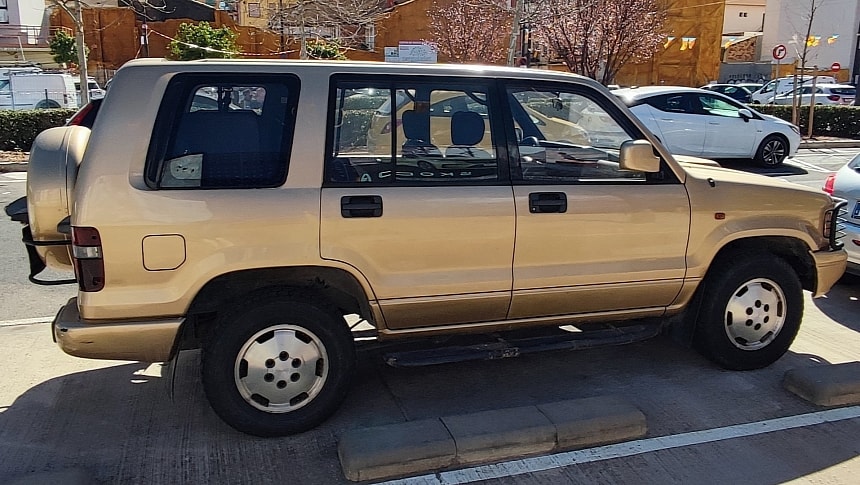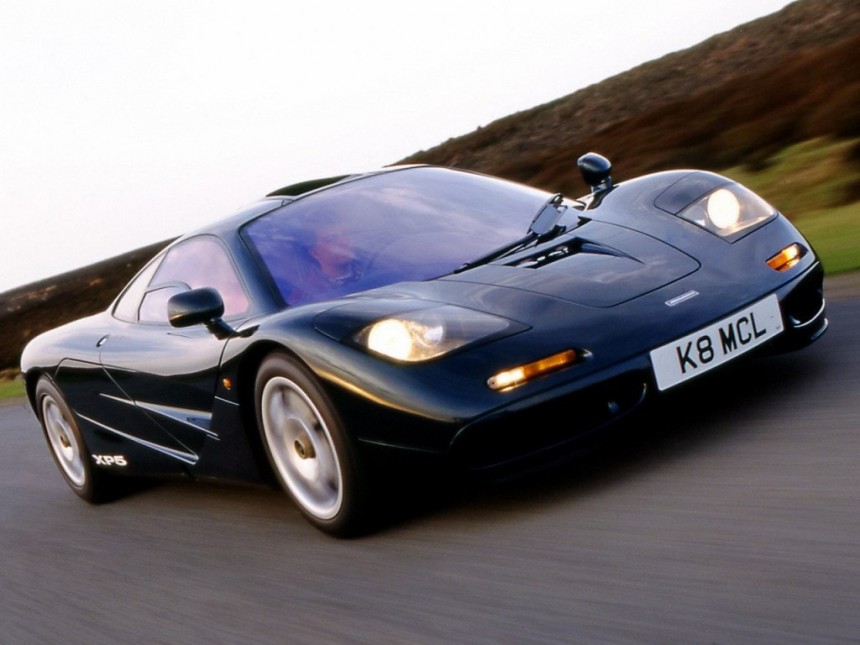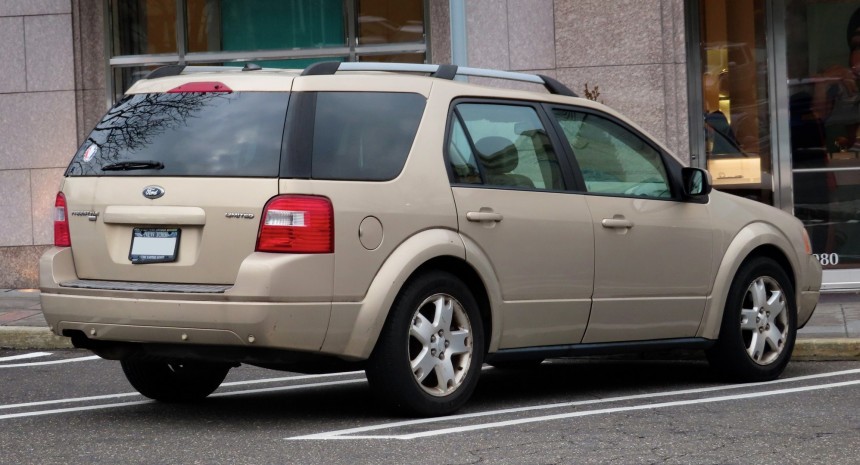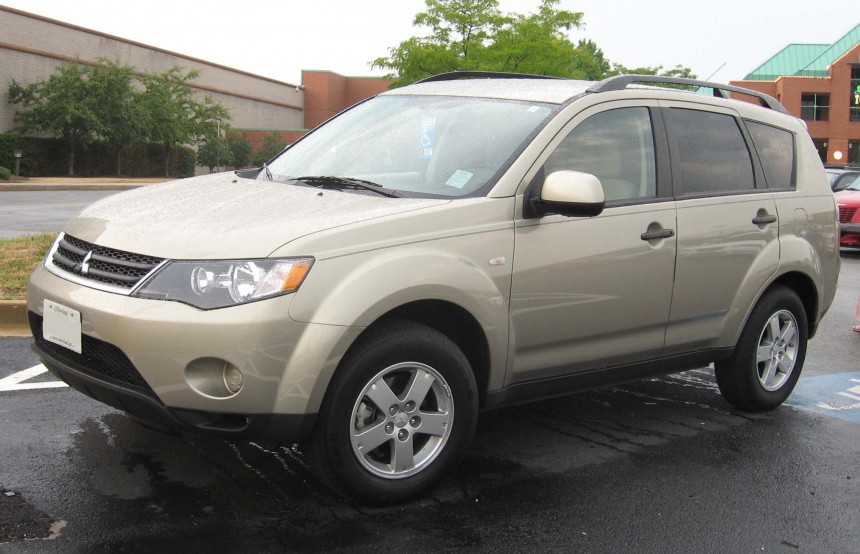I've learned to like automobiles with my father. He would show me a new model, buy me car magazines, and take me to fix his ride with him. From a given point on, I bought the magazines myself, read everything I could about cars, and refused to take a driver's license until I could buy my own wheels. My girlfriend at the time and my family convinced me otherwise, which was pretty useful in one of my first jobs. Eventually, I became a motoring writer. As such, it is my obligation to say nobody else will follow my steps.
I'm not saying that to prevent my younger readers from doing the same thing I did, like a father trying to dissuade a son from a bad decision. That's not the case: I enjoyed my journey despite its ups and downs. I'm just reporting the facts. I don't think my younger readers have the same passion for cars that I did. In fact, I may not even have younger readers. They are much more into computers, technology, TikTok, YouTube, or whatever else attracts their attention. Cars? Not so much. Maybe software-defined cars, but because of the software, not the wheels.
When I bought magazines, I used to fall in love with new models I wished I could buy. The Ferrari F40 made my jaw drop to the ground when it was presented. A while later, the McLaren F1 became my favorite creation of all time. Sadly, I was witnessing the last days of true passion in the automotive industry, something that seems to be lost for good. We barely have car magazines around, anywhere in the world, and even the places that sold them are gone.
The titles that are still active are either turning into websites or fighting to survive by writing about vehicles that do not make anyone dream about them anymore. Sure, we have cars that can break the 400 kph barrier, but what is there to dream about apart from that? Their design? Their handling? Where can you drive them that fast? In the few tracks that we still have available? Considering how much they cost, where to drive them is the least of their target customers' problems. The question is that fewer and fewer buyers see any point in doing so. Most of all, those who cannot even imagine buying them do not seem to bother. Not long ago, they at least dreamed of doing so.
A clear sign that passion is lost is the desperate attempt to recover it with names from the past. The Ford Mustang is now an electric SUV that does not talk about Mach 1 (or 343 m/s, the speed of sound) but about Mach-E. The Ford Capri followed the same path. What about the Mitsubishi Eclipse or the Renault Espace, a car only mothers with large families dreamed about? The marketing departments could choose any other name for these vehicles. Why recover the ones they already had? Was it to save money by using names that were already trademarked or to try to recover the charisma these names still deliver? I think the second hypothesis is the most likely. Ensuring a new product will succeed is better than saving a few bucks. What if the product itself is bland and soulless? Give it a nostalgic name and try to present it as a legitimate successor.
Another clue that people are not that much into current automobiles is the news. A new car will hit the showrooms? The audience willing to learn more about this will be very low. A Pontiac GTO was found after decades in a barn? That's what people want to read. Barn finds, restomods, and rare classic car auctions are what move the needle the most nowadays when it comes to audience numbers. Readers do not seem to care that much about new vehicles, and it is not that difficult to understand why.
The car industry is under so many regulations and demands that most of what it delivers is predictable or dull. Everything is an SUV or something pretty similar that carmakers decide to name otherwise. I have recently read a writer who confessed he was "car blind." If something were not a Volkswagen Beetle or a Bus, he would just say it was a car, whether a Rolls-Royce or a Dacia. Some will probably attack the man, but is he to blame?
Does it have to do with the internet and virtual meetings, long-distance relationships, and everything that allows people to stay home, regardless of what they want? Are people finally accepting Psalm 23 as a happiness guide while repeating, "I shall not want," which includes cars? Or is it just that all cars have become appliances, regardless of being called Neveras, powered by fuel or electricity, or luxurious or simple? It may also be the case that we are just bored with everything.
Whatever the explanation, most people who became car writers by the time I also did are now working with something else. They have joined PR teams or landed marketing positions. Some turned into real estate agents or store owners. The ones who still want to make a living writing about cars either have their own websites or are competing with other writers in content farms for the readers' attention and for interesting subjects to write about. The competition alone cannot explain why there is so little to discuss every day and why there seem to be even fewer interesting subjects as time goes by.
I know that cars are products that have to be manufactured in a way that makes selling them lucrative. Yet, cost pressures have made us see several different cars that are actually the same. It is not only about sharing platforms but everything else. The new Fiat Grande Panda is the Citroën C3 for sale in Brazil and India with a few body changes. In Europe, people know it as the Citroën ë-C3. They have the same engines, and the handling is probably very similar as well. Customers will choose one or the other due to looks or prices because everything else will feel the same, including what should matter the most: driving.
Is there a way to reverse this? Probably. Is it something people want to happen? I have no idea, but I can't say they do after all these years. We've been bombarded by car detractors who think automobiles are the worst thing in the world. They have created car-free days and we have accepted that without questioning. Even some carmakers joined them, as absurd as that may seem. Car haters have blamed them for climate change, and we have not shown enough how ill-informed that is. They have cut parking spaces, and we just wondered where to leave our cars instead. They have become mere tools, and no tools are entitled to any passion. That's a melancholic route for something that once helped people go further than they had ever imagined, but that's what car enthusiasts have left: to praise the past instead of enjoying the present.
When I bought magazines, I used to fall in love with new models I wished I could buy. The Ferrari F40 made my jaw drop to the ground when it was presented. A while later, the McLaren F1 became my favorite creation of all time. Sadly, I was witnessing the last days of true passion in the automotive industry, something that seems to be lost for good. We barely have car magazines around, anywhere in the world, and even the places that sold them are gone.
A clear sign that passion is lost is the desperate attempt to recover it with names from the past. The Ford Mustang is now an electric SUV that does not talk about Mach 1 (or 343 m/s, the speed of sound) but about Mach-E. The Ford Capri followed the same path. What about the Mitsubishi Eclipse or the Renault Espace, a car only mothers with large families dreamed about? The marketing departments could choose any other name for these vehicles. Why recover the ones they already had? Was it to save money by using names that were already trademarked or to try to recover the charisma these names still deliver? I think the second hypothesis is the most likely. Ensuring a new product will succeed is better than saving a few bucks. What if the product itself is bland and soulless? Give it a nostalgic name and try to present it as a legitimate successor.
Another clue that people are not that much into current automobiles is the news. A new car will hit the showrooms? The audience willing to learn more about this will be very low. A Pontiac GTO was found after decades in a barn? That's what people want to read. Barn finds, restomods, and rare classic car auctions are what move the needle the most nowadays when it comes to audience numbers. Readers do not seem to care that much about new vehicles, and it is not that difficult to understand why.
Does it have to do with the internet and virtual meetings, long-distance relationships, and everything that allows people to stay home, regardless of what they want? Are people finally accepting Psalm 23 as a happiness guide while repeating, "I shall not want," which includes cars? Or is it just that all cars have become appliances, regardless of being called Neveras, powered by fuel or electricity, or luxurious or simple? It may also be the case that we are just bored with everything.
Whatever the explanation, most people who became car writers by the time I also did are now working with something else. They have joined PR teams or landed marketing positions. Some turned into real estate agents or store owners. The ones who still want to make a living writing about cars either have their own websites or are competing with other writers in content farms for the readers' attention and for interesting subjects to write about. The competition alone cannot explain why there is so little to discuss every day and why there seem to be even fewer interesting subjects as time goes by.
Is there a way to reverse this? Probably. Is it something people want to happen? I have no idea, but I can't say they do after all these years. We've been bombarded by car detractors who think automobiles are the worst thing in the world. They have created car-free days and we have accepted that without questioning. Even some carmakers joined them, as absurd as that may seem. Car haters have blamed them for climate change, and we have not shown enough how ill-informed that is. They have cut parking spaces, and we just wondered where to leave our cars instead. They have become mere tools, and no tools are entitled to any passion. That's a melancholic route for something that once helped people go further than they had ever imagined, but that's what car enthusiasts have left: to praise the past instead of enjoying the present.
















